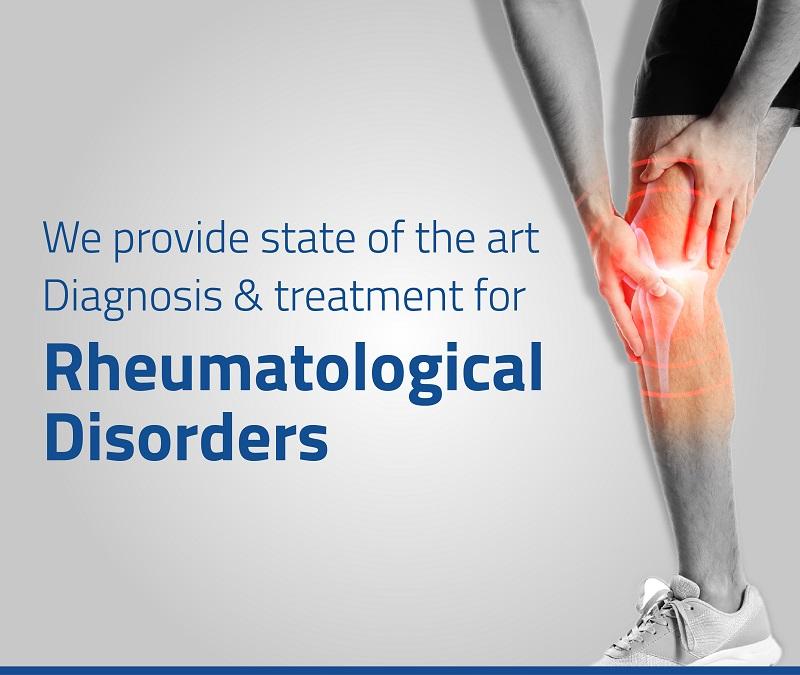Rheumatic diseases often present silently, starting with fatigue, subtle joint stiffness, or generalized pain. Over time, these symptoms can progress, affecting one’s ability to work, perform daily tasks, or even maintain relationships. But living with a rheumatic condition doesn’t mean surrendering to it. Through proper management and support, patients can lead full and active lives.
What Makes Rheumatic Diseases Different?
Unlike injuries or infections that heal over time, rheumatic diseases are chronic and systemic. They often involve immune system dysfunction, meaning the body mistakenly attacks its own tissues. This ongoing internal conflict causes inflammation and can affect not just joints, but also the skin, eyes, lungs, kidneys, and other organs.
Common Conditions Under the Rheumatology Umbrella
Psoriatic Arthritis (PsA)
This condition is associated with the skin disease psoriasis. It causes inflammation in the joints and tendons, and may lead to stiffness, particularly in the morning.
Sjögren’s Syndrome
This autoimmune disease primarily targets the moisture-producing glands, leading to dry eyes and dry mouth. It can also cause joint pain and fatigue.
Vasculitis
Vasculitis involves inflammation of the blood vessels, which can restrict blood flow to vital organs and tissues. It may present with rashes, fever, weight loss, and fatigue.
Managing the Disease – Medications and Monitoring
Managing rheumatic diseases usually involves long-term medication plans. The key is to control inflammation and prevent irreversible damage.
-
Conventional DMARDs: These include methotrexate, sulfasalazine, and leflunomide.
-
Biologic DMARDs: Such as adalimumab or etanercept, which block specific immune responses.
-
JAK Inhibitors: A newer class of medication that interferes with the enzymes responsible for inflammation.
Regular check-ups and lab tests are crucial to monitor disease activity and adjust medications accordingly.
Holistic Approaches to Care
Patients benefit from a comprehensive care plan that includes:
-
Exercise: Low-impact activities like walking, swimming, or yoga help maintain flexibility.
-
Diet: Anti-inflammatory foods like fatty fish, leafy greens, berries, and nuts can support joint health.
-
Hydration: Proper fluid intake is essential, especially in diseases that affect kidney function.
-
Sleep: Restorative sleep helps the body repair and fight inflammation.
-
Mental health care: Addressing anxiety, depression, or feelings of isolation is vital for overall well-being.
Empowering Patients Through Education
Understanding the disease helps patients become active participants in their treatment. Keeping a symptom diary, asking questions during doctor visits, and reading up on the latest research can empower patients and improve their quality of life.
Technology also plays a role—apps for medication reminders, symptom tracking, and virtual support communities have made disease management more convenient than ever.
The Importance of Support Systems
Living with a rheumatic condition can be emotionally taxing. Family, friends, and healthcare professionals must work together to create a strong support network. Encouragement from loved ones can help patients stay motivated and hopeful.
Support groups, both online and in-person, allow patients to share their experiences, coping strategies, and stories of resilience. Knowing you are not alone in your journey can be a source of strength.
Hope Through Research and Innovation
Rheumatology is a rapidly evolving field. Scientists are developing new drugs that offer more effective and safer treatments. Clinical trials continue to open doors for patients who may not respond to standard therapies.
With ongoing research, better diagnostic tools, and a stronger focus on personalized care, the future looks brighter for those living with rheumatic diseases.
Conclusion
While a rheumatic disease diagnosis can be overwhelming, it does not define a person’s future. Through education, consistent care, lifestyle modifications, and emotional support, patients can reclaim control over their health and lead vibrant, fulfilling lives. The road may be long, but with hope and the right resources, the journey becomes one of strength and resilience.
